Sketching 2 (Human Body Sketching)
Time: February 17, 2020-March 6, 2020
Teaching team: Yan Hui (Associate Professor) and Ma Xiaojun (Graduate teaching assistant)
Participants: first-year undergraduates majoring in oil painting or mural painting
Sketching human body is not only a tradition of Western academic painting but also central to plastic arts. Traditional classroom teaching focuses on human body sketching. In the early stage, we focus on human anatomy fundamentals. We will ask models to change their poses during sketching, offer one-to-one guidance and instruction, and analyze homework assignments. However, online teaching is completely different. After thorough consideration, the teaching team decided to increase classroom interaction and discussion as well as the content concerning human anatomy and human form-related art history.
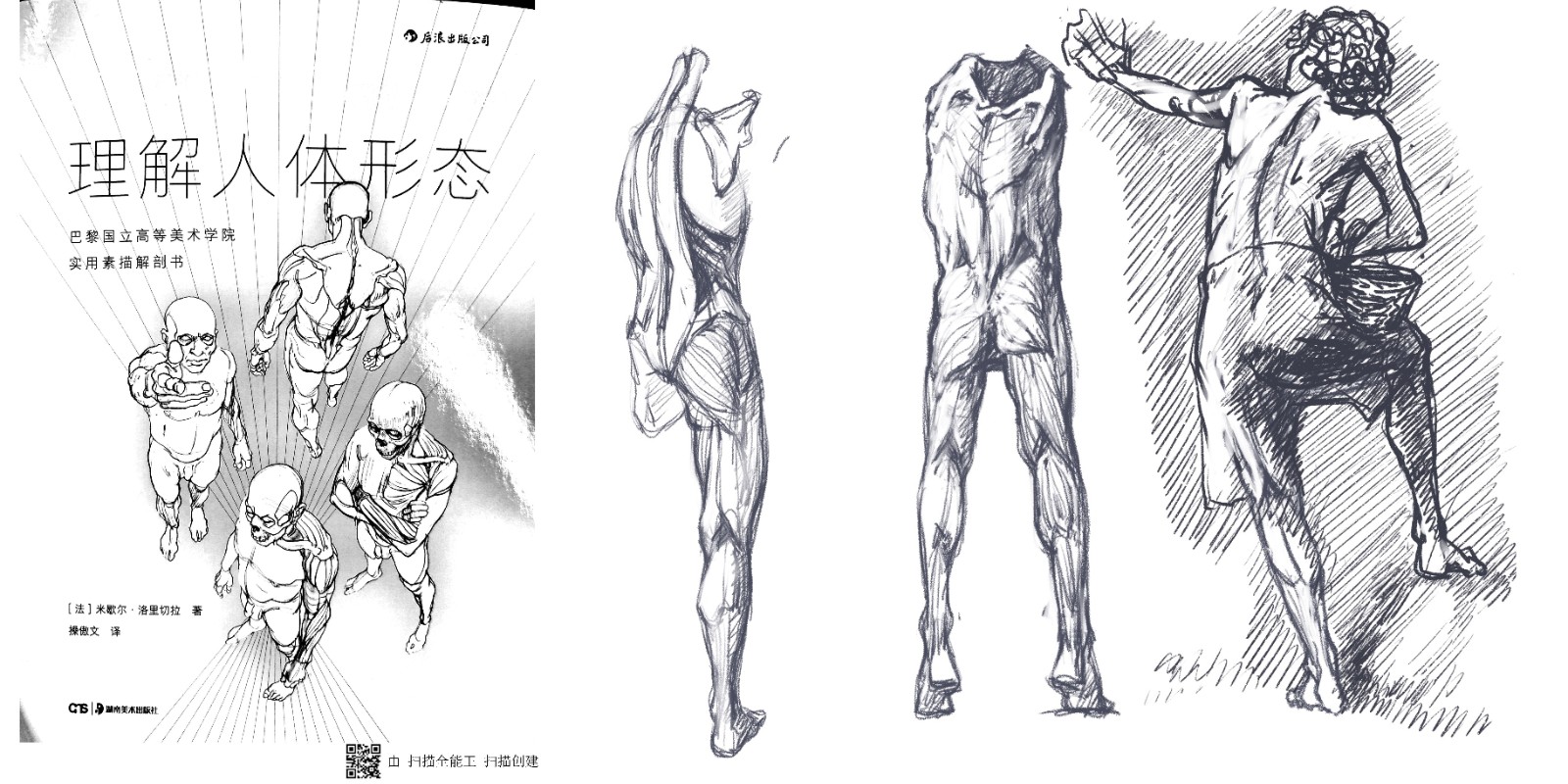
The change of the teaching model did cause some problems. The first problem was the lack of live models. The best solution was using pictures of models as a figure drawing reference tool. It was proved that online teaching, as a last resort in the case of school closure for COVID-19, changed the students' previous understanding of sketching.
It is much easier to engage students online than in a classroom setting. Students are less willing to share their true thoughts in a classroom setting for fear of embarrassment or sounding awkward. The Internet has helped solved this problem. Tsinghua University's teaching software Yuketang allows students send bullet comments as anonymous users. Due to anonymity, students become more comfortable speaking up or asking questions. They can also like or dislike comments sent by others. Furthermore, will not disturb the flow of the lecture. On the contrary, it creates an engaging atmosphere which is difficult to achieve in a classroom setting.
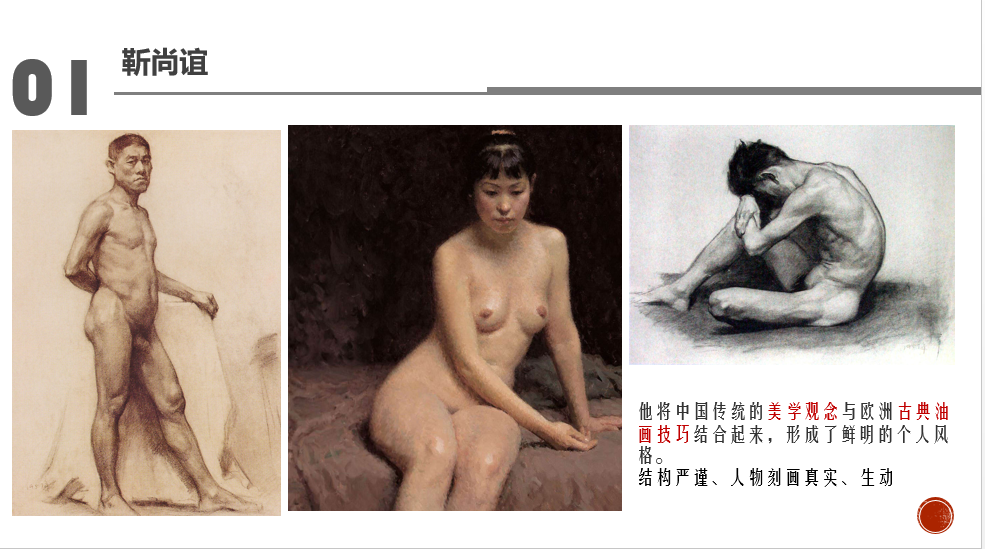
Afterthoughts:
1. It is much easier to teach human form online than in a classroom setting. Integrating online and classroom teaching will be the trend shaping the future of education.
2. Practicing human body sketching with photo references can be an effective way to train students studying plastic arts. The key is to figure out how to treat and use photos.
2. Learning the history of human form art can help students understand traditions of arts and social reality and prompt them to think about how they can integrate human form into art creation.
4. Instructors should take into consideration the learning needs of students when assigning figure sketching homework.
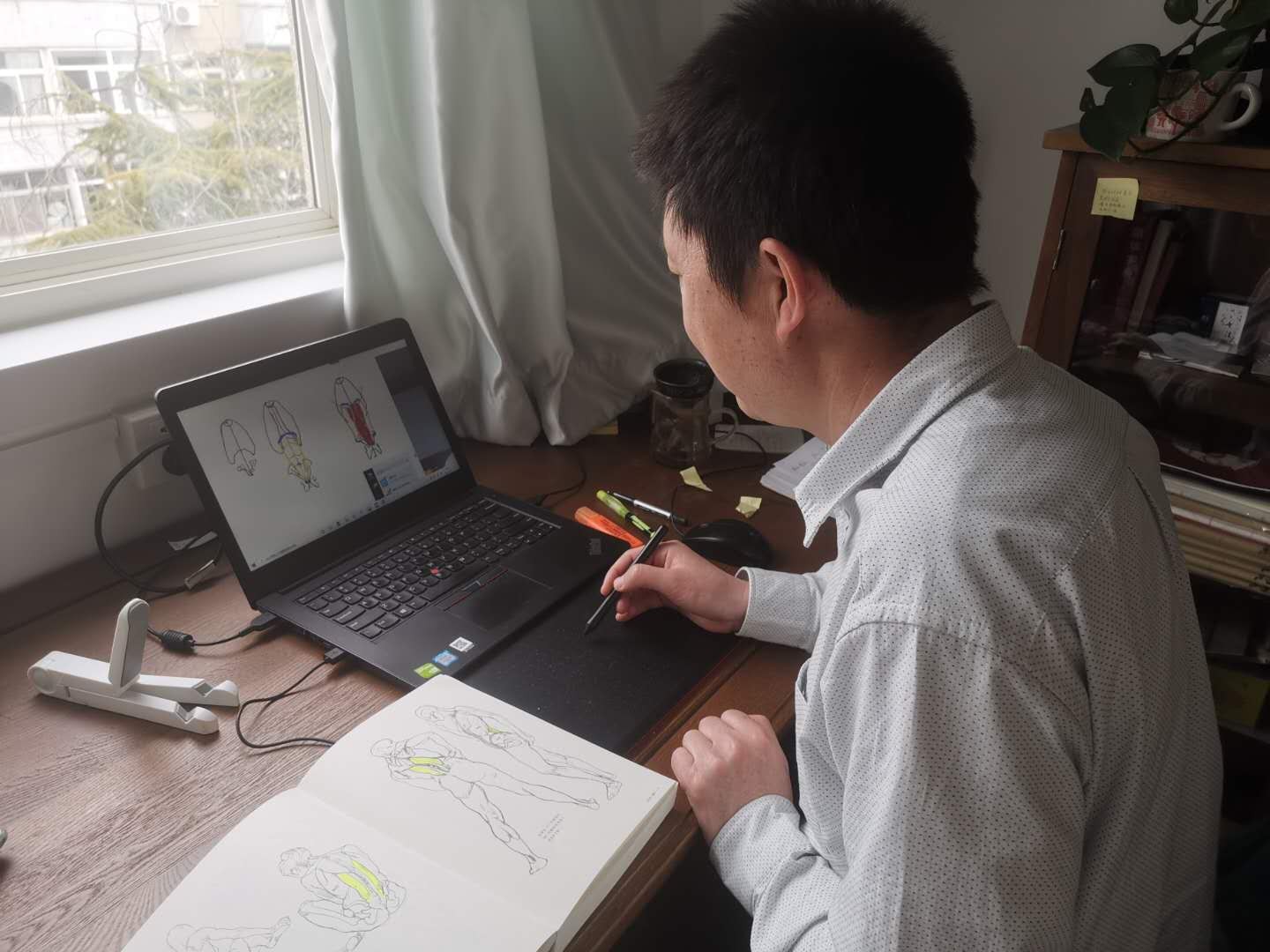
Yan Hui (Associate Professor), Department of Painting

Student Works
Figure sketches by students majoring in oil painting
Group 1: Bai Qinxin, Huang Jiawei, Huang Yijing, and Jiang Xinyu

Group 2: Li Jiayang, Li Yuexuan, and Lu Lei

Group 3: Sun Zhixuan, Tatsumi Kure, Xu Xiaoyang, and Zhu Jinghui
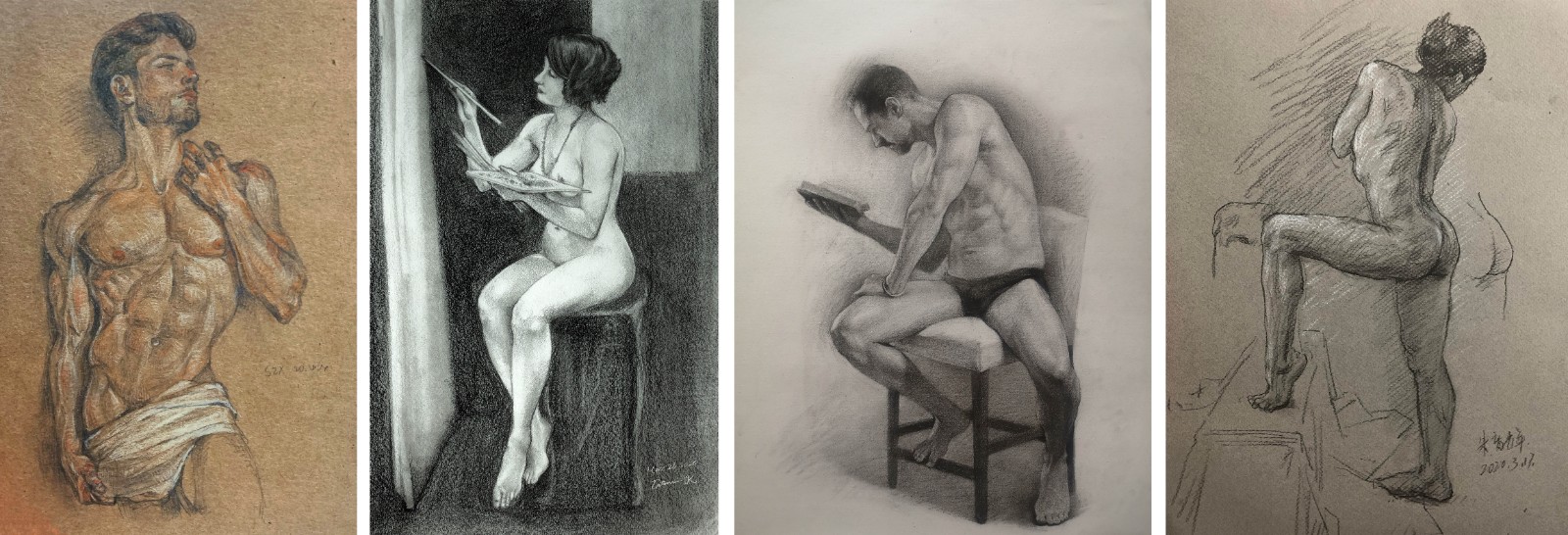
Medium experiments by students majoring in oil painting
Group 1: Bai Qinxin, Huang Jiawei, Huang Yijing, Tatsumi Kure, and Xu Xiaoyang
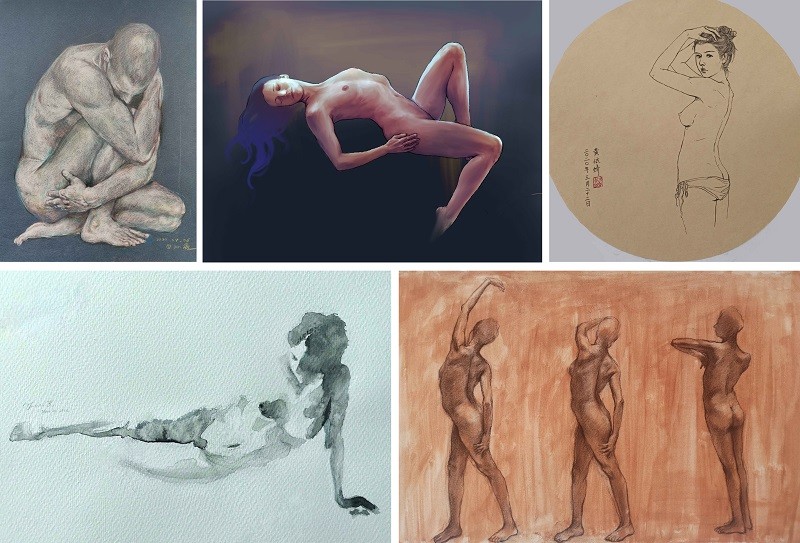
Group 2: Li Jiayang, Li Yuexuan, Lin Chenghao, Sun Zhixuan, and Zhu Jinghui
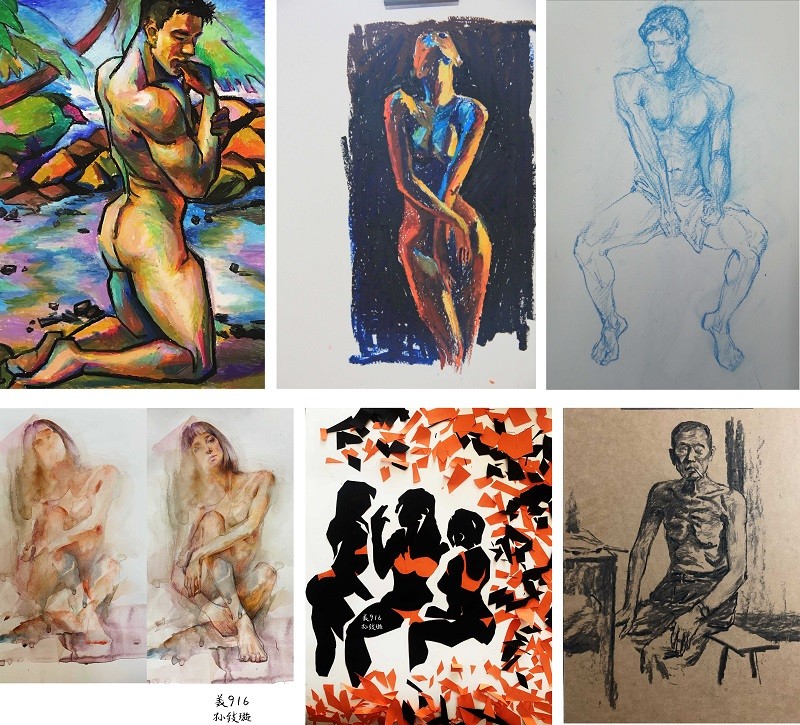
Figure sketches by students majoring in mural painting
Group 1: Geng Yifan, Liu Jinyu, Luo Yang, Lu Chuyi, and Luo Jinshi

Group 2: Xiao Yakun, Yan Cheng, Zheng Qiaoxi, Zhong Shuai, and Zhou Mengyang
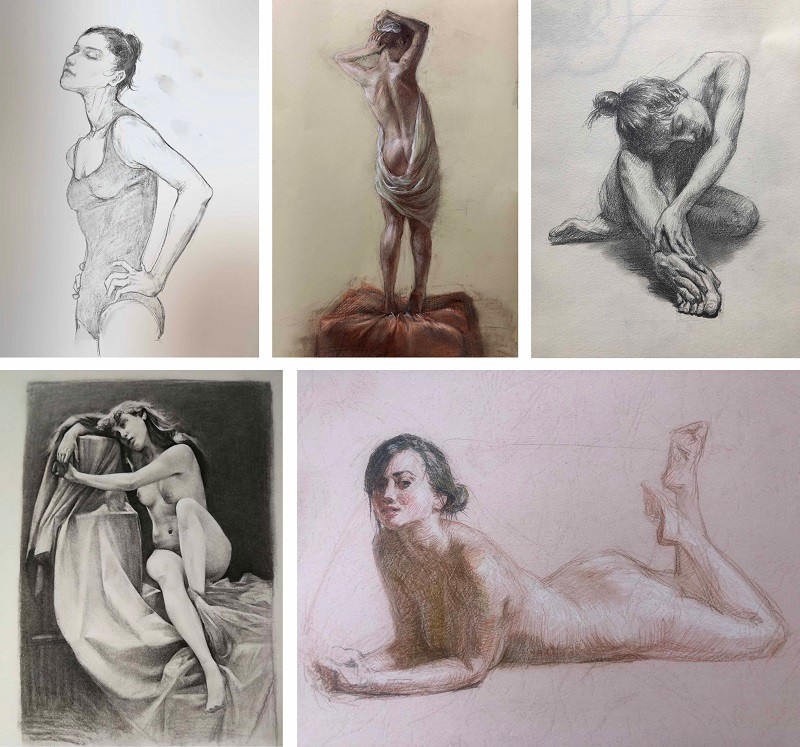
Medium experiments by students majoring in mural painting
Group 1: Geng Yifan, Lu Chuyi, Luo Yang, and Zhong Shuai
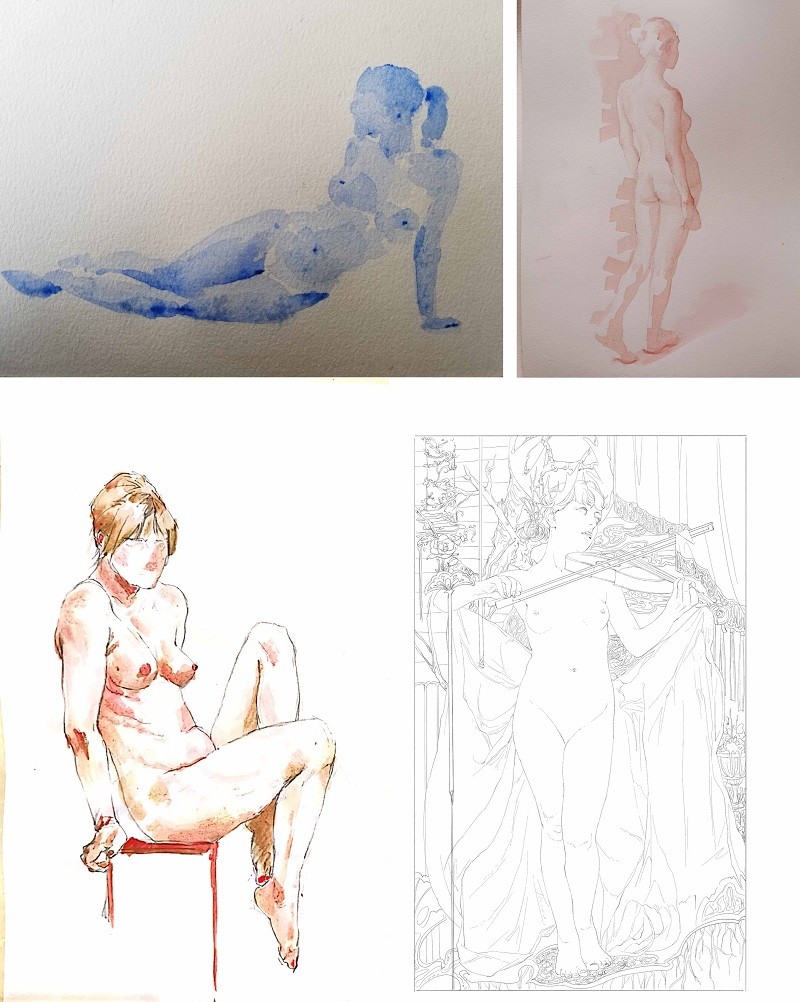
Group 2: Zheng Qiaoxi, Zhong Shuai, and Zhou Mengyang
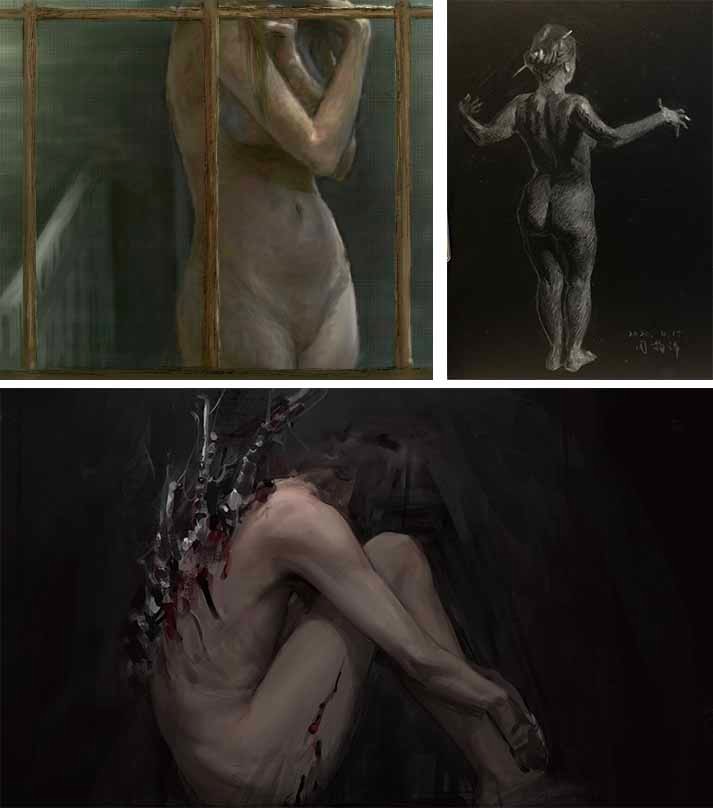
Source: Yan Hui, Associated Professor, Department of Painting
Editor: Zhao Ruohan

